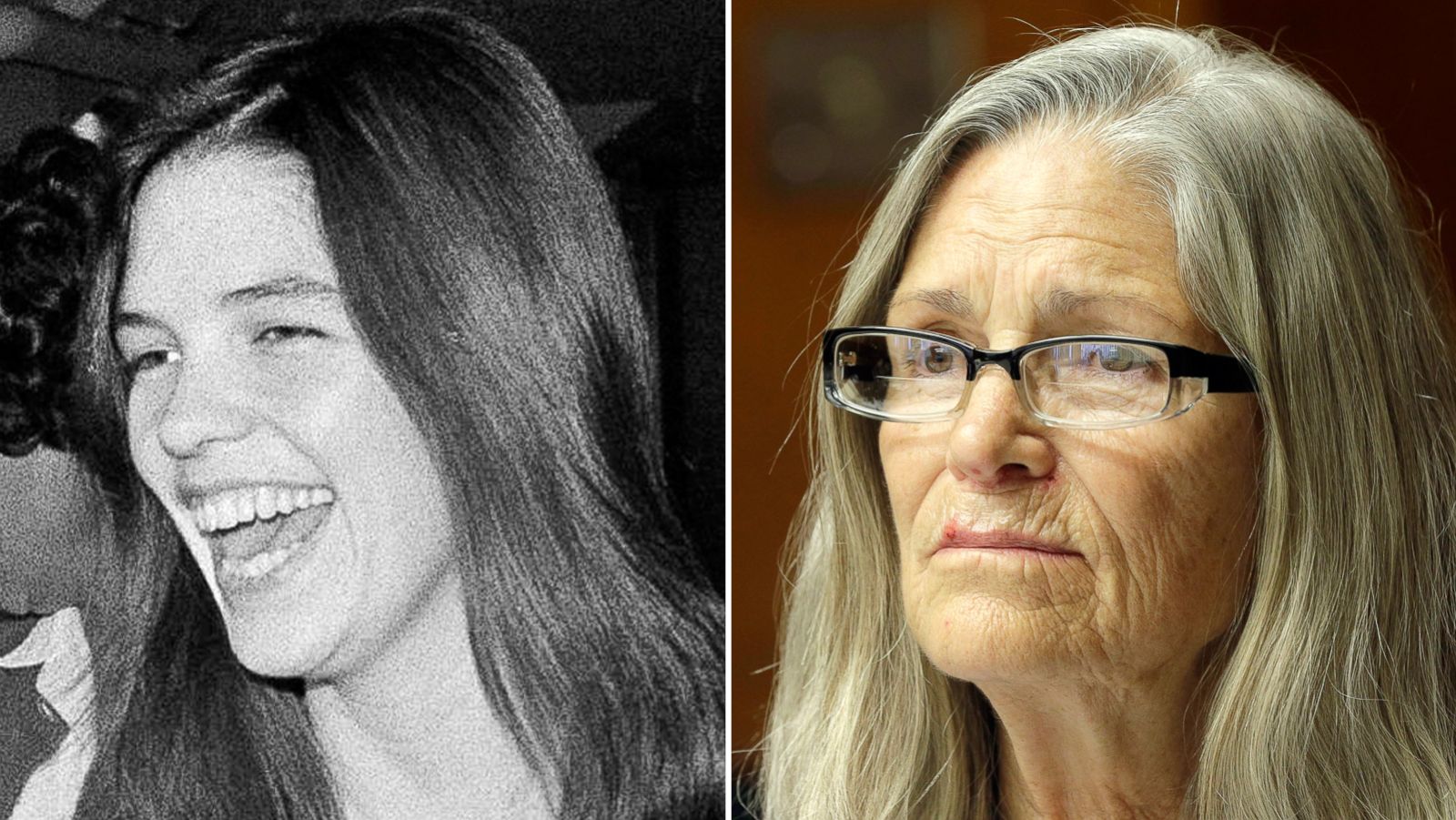By John F. Di Leo, Opinion Contributor
Leslie Van Houten, age 73, has been released into the transitional care of a halfway house, having spent about 52 years in prison.
54 years ago, in August of 1969, she and a gang of other young thugs were followers of the now famous psychopath Charles Manson, who ordered his acolytes to commit a bunch of ghastly murders in a two-day California killing spree. The most famous victim was aspiring actress Sharon Tate, then the young bride of director Roman Polanski.
Leslie Van Houten’s direct victims were Leno and Rosemary LaBianca, the following day.
19 years old at the time, Leslie Van Houten, considered one of the senior leaders of the “Manson Family,” viciously stabbed Rosemary LaBianca at least 16 times (that’s out of the total 40 stabbings the group delivered to her).
Convicted of the murders along with the other members of the Manson gang in 1971, she became eligible for parole consideration when California made capital punishment illegal and her sentence was downgraded to life imprisonment.
This year, California’s parole board recommended her for release, saying she’s fully rehabilitated and poses no further threat to the public.
That may be. At 73, she may not have the strength to stab an innocent victim 16 times again. Who knows?
But then, when she was a typical 19-year-old hippie chick in 1969, if you asked her friends or family, they probably would have said she wouldn’t have been the type to do such a thing back then, either.
They tell us that’s she’s been in therapy for decades, and she’s “sweet” now. That’s the adjective they use, to describe this one-time monster who stabbed an innocent woman to death alongside her dying husband, as she begged for her life to be spared.
They remind us, proudly, that Van Houten earned bachelor’s and master’s degrees in counseling, during her years behind bars (makes you wonder who paid for those college degrees, doesn’t it?).
They tell us that she will be able to be productive on the outside. Maybe she could become a motivational speaker! (No exaggeration; this has been seriously suggested).
On the one hand, this is an unusual case.
Convicted multiple times of murder, she was in the leadership of a drug-and-sex-crazed criminal commune that murdered eight innocent victims in a notorious rampage that defines America’s memory of that era. She was on LSD for years. And in the early years of her trial and incarceration period, she wasn’t exactly apologetic.
Over the years, as she grew distant from the drugs, separated from the mesmerizing influence of Charles Manson, she slowly seemed to reform; today she seems pleasant, a little old lady, perhaps old beyond her years from spending half a century in prison.
She looks, in some ways, like the textbook example of a reformed prisoner who merits release. She has, after all, done 50 years of prison time for the crimes.
But then, on the other hand, she and her colleagues (Tex Watson and Patricia Krenwinkel) did murder two completely innocent people in cold blood.
On purpose.
Not out of self-defense, not out of desperation or hunger or mistaken identity.
And while Leslie Van Houten spent 50 years in free government housing, getting free healthcare and therapy and oodles of interviews and books written about her, and movies made about her, and actresses building their careers on portraying her, and getting that free college education to prepare her for her eventual release — her victims were denied all that.
Leno and Rosemary LaBianca have spent those 54 years in the ground.
The families and friends of Sharon Tate and the LaBiancas and the other less famous victims have had to spend these fifty years without the friend, the sister, the brother, the parents, the aunts and uncles, the grandparents, who should have been part of their lives.
This is the problem, the challenge, with a friendly, forgiving society that tries to look only at the criminal. We can say “She looks like she’s done her time; she seems to have reformed; she seems like a nice old lady now. What purpose does it serve to keep her locked up?”
Well, keeping her locked up would indeed serve a purpose, and not just the main one: to keep her from doing it again.
Keeping her locked up – in fact, keeping every convicted murderer locked up – would act as a deterrent to others. Knowing that if you’re caught, even in a state without the death penalty, you may spend 50 or 60 or 70 years in jail, does indeed deter criminals.
In a world without morals, fear of a long, miserable lifetime in jail may be the only real deterrent.
But perhaps most importantly, keeping convicted criminals locked up is how society shows that it values the victims and their surviving friends and families.
Keeping her locked up would have shown that we – American society, as a whole – understand the Tate and LaBianca families’ loss, and we will honor these victims’ families suffering by keeping their loved ones’ killers locked up permanently. Because we know that to see them walk free, when the victims cannot, is a slap in the face to every victim, and to every victim’s family.
But we didn’t keep her locked up, did we?
No. Leslie Van Houten applied for parole again and again. Some would argue that if she were really remorseful, she wouldn’t have applied, because she would know that she doesn’t deserve to get out. She applied and applied, and eventually the government let her go, ultimately answering the question.
In today’s America, the powers that be really do care more for the criminals than for the victims.
And in almost every state, in almost every big city across the country, that horrendous error in judgment is at the heart of the crime wave currently tearing our nation apart.
Copyright 2023 John F. Di Leo
John F. Di Leo is a Chicagoland-based trade compliance trainer and transportation manager, writer, and actor. A one-time county chairman of the Milwaukee County Republican Party, he has been writing regularly for Illinois Review since 2009. Follow John F. Di Leo on Facebook, Twitter, Gettr or TruthSocial.
A collection of John’s Illinois Review articles about vote fraud, The Tales of Little Pavel, and his 2021 political satires about current events, Evening Soup with Basement Joe, Volumes One and Two, are available, in either paperback or eBook, only on Amazon.
Don’t miss an article! Use the tool on this page to sign up for Illinois Review’s free email notification service, so you always know when Illinois Review publishes new content!








